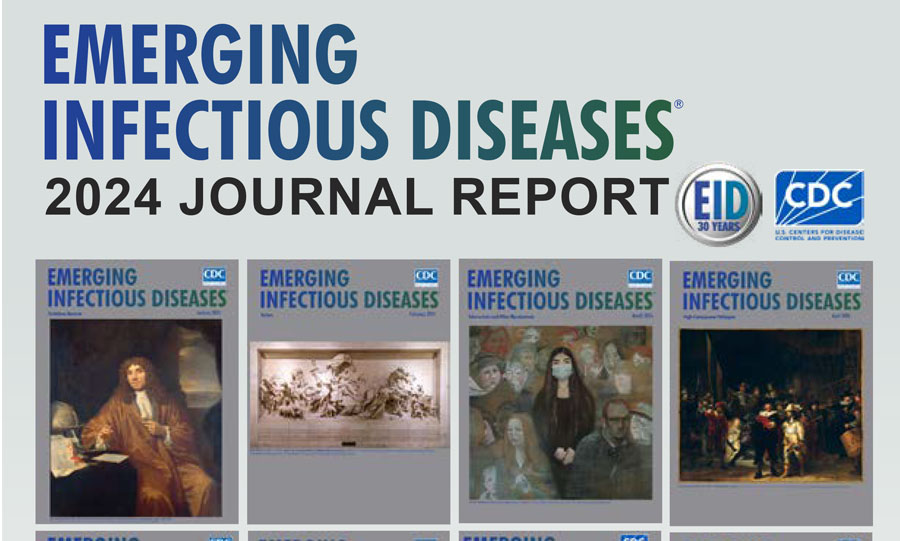Online Reports
Volume 21—2015
Volume 21, Number 6—June 2015
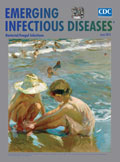
Consensus on the Development of Vaccines against Naturally Acquired Melioidosis
Several candidates for a vaccine against Burkholderia pseudomallei, the causal bacterium of melioidosis, have been developed, and a rational approach is now needed to select and advance candidates for testing in relevant nonhuman primate models and in human clinical trials. Development of such a vaccine was the topic of a meeting in the United Kingdom in March 2014 attended by international candidate vaccine developers, researchers, and government health officials. The focus of the meeting was advancement of vaccines for prevention of natural infection, rather than for protection from the organism’s known potential for use as a biological weapon. A direct comparison of candidate vaccines in well-characterized mouse models was proposed. Knowledge gaps requiring further research were identified. Recommendations were made to accelerate the development of an effective vaccine against melioidosis.
Volume 21, Number 4—April 2015
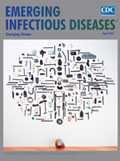
Global Avian Influenza Surveillance in Wild Birds: A Strategy to Capture Viral Diversity
Wild birds play a major role in the evolution, maintenance, and spread of avian influenza viruses. However, surveillance for these viruses in wild birds is sporadic, geographically biased, and often limited to the last outbreak virus. To identify opportunities to optimize wild bird surveillance for understanding viral diversity, we reviewed responses to a World Organisation for Animal Health–administered survey, government reports to this organization, articles on Web of Knowledge, and the Influenza Research Database. At least 119 countries conducted avian influenza virus surveillance in wild birds during 2008–2013, but coordination and standardization was lacking among surveillance efforts, and most focused on limited subsets of influenza viruses. Given high financial and public health burdens of recent avian influenza outbreaks, we call for sustained, cost-effective investments in locations with high avian influenza diversity in wild birds and efforts to promote standardized sampling, testing, and reporting methods, including full-genome sequencing and sharing of isolates with the scientific community.
Volume 21, Number 2—February 2015
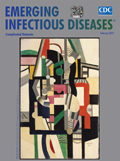
Melioidosis Diagnostic Workshop, 2013
Melioidosis is a severe disease that can be difficult to diagnose because of its diverse clinical manifestations and a lack of adequate diagnostic capabilities for suspected cases. There is broad interest in improving detection and diagnosis of this disease not only in melioidosis-endemic regions but also outside these regions because melioidosis may be underreported and poses a potential bioterrorism challenge for public health authorities. Therefore, a workshop of academic, government, and private sector personnel from around the world was convened to discuss the current state of melioidosis diagnostics, diagnostic needs, and future directions.
Volume 21, Number 1—January 2015
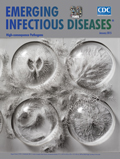
Workshop on Use of Intravenous Immunoglobulin in Hand, Foot and Mouth Disease in Southeast Asia
The South East Asia Infectious Disease Clinical Research Network convened subject matter experts at a workshop to make consensus recommendations for study design of a clinical trial for use of intravenous immunoglobulin (IVIg) in severe hand, foot and mouth disease (HFMD). HFMD is a highly contagious emerging infection among children in the region, a small proportion of whom develop neurologic and cardiopulmonary complications with high case-fatality rates. The use of IVIg for treatment of severe disease is widespread and a part of local, national, and international guidelines, but no clinical evidence warrants the use of this drug, which is expensive and has potentially serious side effects. During a 2-day workshop in March 2014, a group of HFMD experts reviewed the current evidence related to use of IVIg in HFMD and discussed potential study design, feasibility, inclusion and exclusion criteria, sample size, primary and secondary endpoints, and subsidiary studies for a randomized, placebo-controlled trial.

